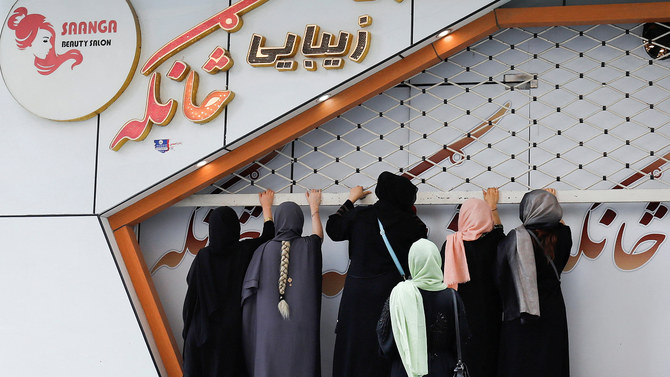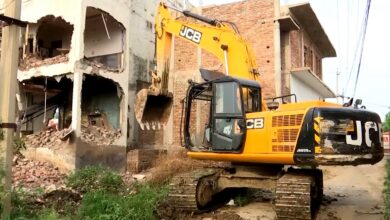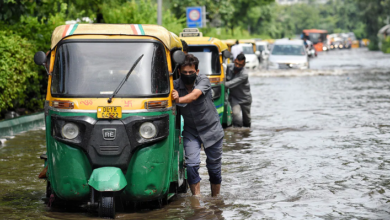With the Deadline Looming, Afghan Beauty Salons Make Preparations for Shutdown
"Due to the prohibition on women entering entertainment venues, we find ourselves questioning where we can find enjoyment, gather, and socialize with one another."

Kabul: On Tuesday, a significant number of beauty parlors throughout Afghanistan were set to shut down permanently after a directive from Taliban authorities. This decision deprives women of one of their limited sources of income and takes away a cherished place for social interaction.
Since assuming control in August 2021, the Taliban administration has prohibited girls and women from attending high schools and universities, forbidden their access to parks, funfairs, and gyms, and mandated that they must conceal their appearance in public.
However, a directive issued in the previous month mandates the shutdown of numerous salons across the country, which are predominantly operated by women and often serve as the sole income source for their households. This order also prohibits one of the scarce opportunities for women to socialize outside of their homes.
Bahara, a customer at a salon in Kabul, lamented, “We used to visit this place to spend time discussing our future together. Now, even this privilege has been snatched away from us.”
With entertainment venues off-limits to women, the pressing question arises: What alternatives do we have for leisure? Where can we find enjoyment and opportunities to socialize with one another?
In Kabul, just a week ago, security personnel dispersed a group of protesting women by firing shots into the air and utilizing water cannons.
Towards the end of June, the Ministry for the Promotion of Virtue and Prevention of Vice instructed salons to cease operations by Tuesday. The grace period was provided to allow them to deplete their existing stock.
The reason cited for issuing the order was that excessive spending on makeovers placed a burden on impoverished families, and certain salon treatments were deemed non-compliant with Islamic principles.
The ministry stated that excessive makeup hindered women from performing proper ablutions before prayer, and as a result, eyelash extensions and hair weaving were also declared prohibited.
According to a document reviewed by AFP, the order was issued based on verbal instructions from the supreme leader, Hibatullah Akhundzada.
During the two decades of United States-led occupation in Afghanistan, beauty parlors proliferated in Kabul and other cities in the country. These establishments were perceived as safe havens for women to convene and socialize without the presence of men, and they also offered crucial economic prospects for women in the region.
When the Taliban assumed control, thousands of female government employees either faced unemployment or received payment for staying at home.
However, with the prohibition on beauty parlors, an additional 60,000 women are expected to lose their sources of income as approximately 12,000 salons shut down, as reported by the Afghanistan Women Chamber of Commerce and Industry.
In a report submitted to the United Nations’ Human Rights Council the previous month, Richard Bennett, the special rapporteur for Afghanistan, described the situation of women and girls in the country as “among the most severe globally.”
According to Bennett’s statement, the core of Taliban ideology and governance revolves around severe, organized, and institutionalized bias against women and girls, leading to apprehensions that they might enforce gender segregation tantamount to gender apartheid.




